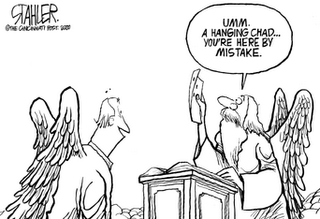So I am 5 classes from finished with coursework for the PhD -- counting the two I'm currently taking. Both of the classes this fall are really Master's level so there's extra work for me. Okay. No big. Both of them are also 100% online. Way cool. Let's me work on school stuff whenever. Even from the church office sometimes.
But one of the classes is requiring me to observe 3 events. Okay, so I jumped on that quick and found events that are free and during school hours. No cost, no childcare. Way cool, again!
The first observation had a small class, maybe 6 of us. The instructor looked very familiar to me. As I'm trying to figure out who she is, I'm also trying not to embarrass myself because I can't think of exactly from where I know her. Turns out we have had several doc classes togther and share the same advisor. Her class was lively, professional, and informative. She did a great job, I wasn't bored, got my certificate. Win all around.
My 2nd observation was today. Not quite the same experience today as the first observation. There were co-trainers. The lead had a very think accent and communicated well anyway. She was appologetic for her accent but I think she was pretty clear. She told about coming to the Training Place a few years ago to learn English and now teaches there. She was professional, on task, good examples, etc. During the break, someone in the bathroom was talking about how hard it was to understand her; I couldn't disagree more. Yes, she had an accent and always said childrens instead of children, but understandable and warm. Good information with personal examples. She seemed approachable and connected with the class.
But the co-trainer. The co-trainer is a social worker and I don't think he had ever taught this before. He referred to a list of feelings on a page he had copied out a book but didn't have copies for everyone and never actually named any feelings! In the midst of saying we need to name our feelings! AUGH! In the face of this incongruity, I was doing everything I could to be quiet. Meanwhile, like a snob, thinking, "I can do better than this."
Then, ... then, ... he said something that I almost couldn't stay quiet for: we should never guilt or shame our children. WHAT? He said it again a slightly different way. Then he said it again. I was silent, at least externally. Then this woman started asking, but really not asking, about how guilt and shame for children comes from Catholics. Okay, silence is now history.
I say something like, "Wait. I think there is a big difference between guilt and shame. Guilt is about doing something wrong. Shame is about being wrong. There's a huge difference between choosing the wrong action and being the wrong person. You have to learn to make better choices and there are consequences for bad choices. That's different from being told "you are bad" or "you are an idiot." Those are about who you are not about what you do. Shame is about who you are. Guilt is about what you do. They are very different and I think we need to be careful not to roll them together. And I don't think the Catholics have a lock on any of that. I've seen plenty of folks from all kinds of backgrounds that use shame in a bad way."
The leader guy with the Social Work degree continues with the "we can't guilt or shame our children because it messes them up for life. They won't have a good self-esteem if we guilt and shame them." okay, so my body was still sitting there while my brain went out the door. Just nearly started playing Majong on the PDA. In a communication class, I felt quite unheard.
Now, I'm really clear that shame is inappropriate in raising a kid. I agree that giving messages to kids that tell them they are bad (rather than they are good and made a bad choice) will do serious damage.
But I'm just as clear that a good self-esteem with no guilt looks like some pathologically messed up person who feels no remorse, blames someone else, and is convinced of his/her own brilliance.











